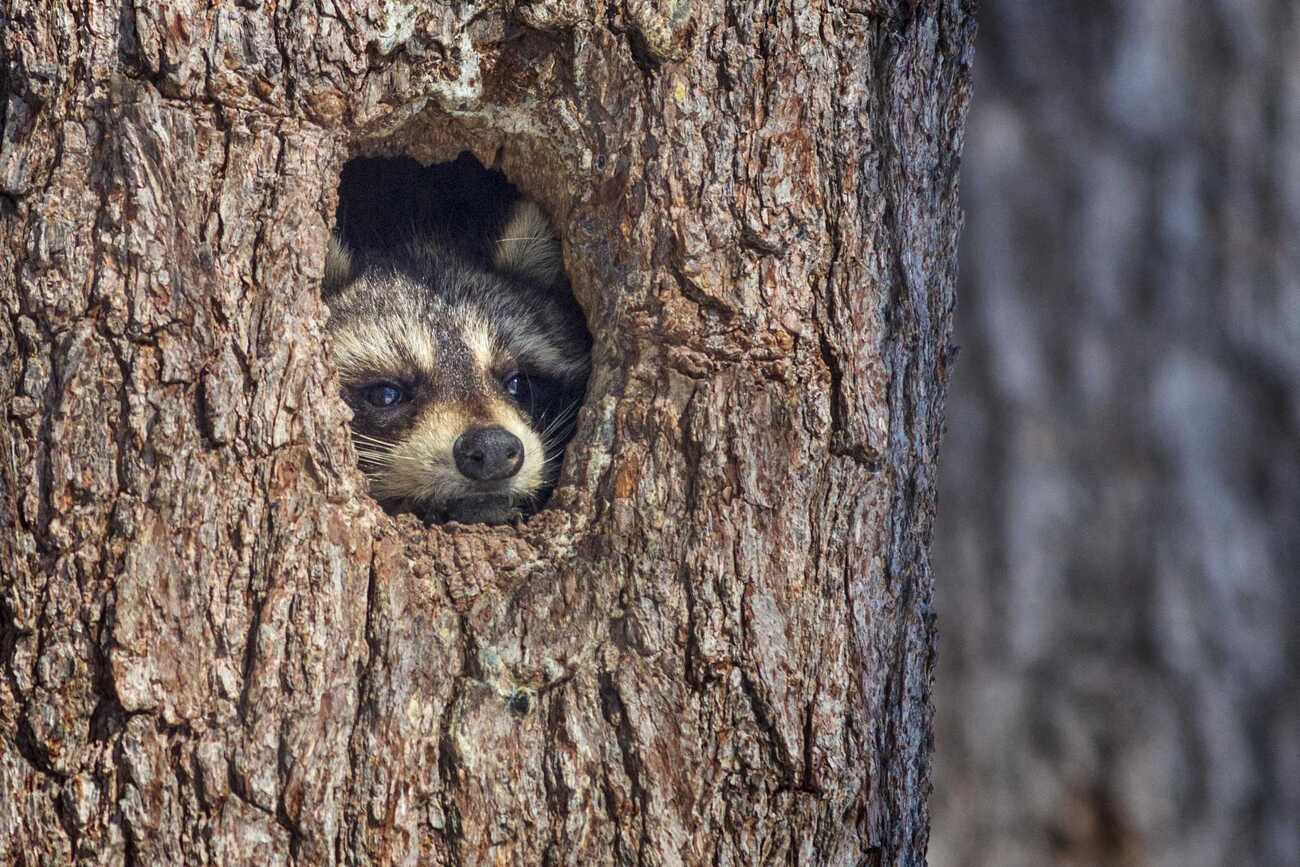
Ever wondered why raccoons wear those adorable masks? Or how they've earned the nickname "Nature's Masked Bandits"? Well, you're in for a treat! Raccoons are some of the most intriguing and clever creatures roaming our backyards and city streets. With their dexterous paws and curious nature, these little critters have fascinating tales to tell. From their unique habits to their surprising skills, we're diving into 15 amazing facts about raccoons that will surely pique your interest. Whether you're a wildlife enthusiast or just curious about these nocturnal neighbors, get ready to uncover the secrets behind those twinkling eyes. Raccoons are not just about rummaging through your garbage; they're complex animals with intriguing lives. Let's peel back the mask and discover what makes raccoons truly captivating!
Key Takeaways:
- Raccoons are incredibly smart and adaptable, using their dexterous paws to solve problems and remember solutions for up to three years. They thrive in urban areas but face threats from habitat loss and human activity.
- Raccoons have a rich history of interaction with humans, from raiding garbage cans to being featured in folklore and media. As urban expansion continues, conservation and education efforts are crucial for their coexistence with humans.
What Makes Raccoons Unique?
Raccoons are among nature's most curious creatures, easily recognized by their distinctive black mask and ringed tail. These nocturnal mammals are not just known for their unique appearance but also for their intelligence and adaptability. Here are some fascinating facts about these clever animals.
-
Raccoons possess highly dexterous front paws, resembling human hands, which allow them to open jars, untie knots, and even unlock cages. Their tactile prowess is unmatched in the animal kingdom, making them excellent problem solvers.
-
These animals have a remarkable memory for tasks they've solved, remembering solutions for up to three years. This cognitive ability demonstrates their intelligence and learning capacity.
Raccoons in the Wild
While raccoons are often spotted in urban areas, they originate from the wild, where their behaviors and lifestyle are tailored to survival.
-
In their natural habitat, raccoons are omnivorous, feeding on a diet that includes fruits, nuts, insects, and small animals. This varied diet helps them adapt to different environments easily.
-
Raccoons use a unique method called "dousing" to wash their food before eating. Although it looks like they are washing their food, scientists believe this behavior enhances their tactile experience and helps them identify their food better.
-
A raccoon's home range can be quite large, with males roaming areas up to 20 square kilometers. This nomadic lifestyle is essential for finding food, mates, and suitable nesting sites.
Raccoons and Humans
Raccoons have a long history of interaction with humans, often leading to fascinating, if not challenging, encounters.
-
Due to their adaptability, raccoons have thrived in urban environments, where they are known to raid garbage cans, gardens, and even homes in search of food. Their intelligence and dexterity make them adept at navigating the urban landscape.
-
In some cultures, raccoons are kept as pets. However, their wild nature and specific care needs make them challenging companions for the unprepared.
-
Raccoons can carry diseases transmissible to humans, including rabies. While not all raccoons are carriers, it's crucial to maintain a safe distance and not attempt to feed or handle wild raccoons.
Conservation Status of Raccoons
Despite their adaptability, raccoons face threats from habitat loss and human activity.
-
Currently, raccoons are not considered endangered, thanks to their ability to thrive in a wide range of environments. However, local populations can suffer from urban development and loss of natural habitats.
-
Wildlife conservation efforts aim to protect raccoon habitats and ensure the species' long-term survival. Educating the public about raccoons and their role in the ecosystem is a key part of these efforts.
Raccoons in Popular Culture
Raccoons have captured the imagination of people around the world, featuring prominently in folklore, movies, and literature.
-
In many Native American tribes, raccoons are featured in myths and stories, often portrayed as clever tricksters or resourceful characters.
-
The popularity of raccoons in media has grown, with characters like Rocket Raccoon from Marvel's Guardians of the Galaxy highlighting their mischievous and intelligent nature.
-
Raccoons are also popular mascots and symbols in various brands and organizations, appreciated for their curious and adaptable nature.
The Future of Raccoons
As we look to the future, raccoons continue to fascinate and challenge us with their presence.
-
With ongoing urban expansion, the interaction between raccoons and humans is likely to increase, raising questions about coexistence and wildlife management.
-
Conservation and education efforts are crucial in ensuring that raccoons remain a thriving part of our natural world, balancing their needs with those of human populations.
A Peek Behind the Mask
Raccoons, with their distinctive masks and clever paws, are more than just urban scavengers. They're a testament to adaptability and intelligence in the animal kingdom. From their surprising swimming skills to their ability to open jars, these creatures showcase a level of cunning that rivals that of many mammals. Their diet, diverse habitats, and nocturnal adventures reveal a complex life far beyond the trash cans they're often associated with. Understanding raccoons helps us appreciate the balance of ecosystems and the importance of every creature's role within it. Next time you spot one of these masked bandits, remember, there's a whole lot more to their story than meets the eye. Their presence in our backyards is a reminder of the wild's persistence and the intricate connections between humans and nature.
Frequently Asked Questions
Was this page helpful?
Our commitment to delivering trustworthy and engaging content is at the heart of what we do. Each fact on our site is contributed by real users like you, bringing a wealth of diverse insights and information. To ensure the highest standards of accuracy and reliability, our dedicated editors meticulously review each submission. This process guarantees that the facts we share are not only fascinating but also credible. Trust in our commitment to quality and authenticity as you explore and learn with us.


